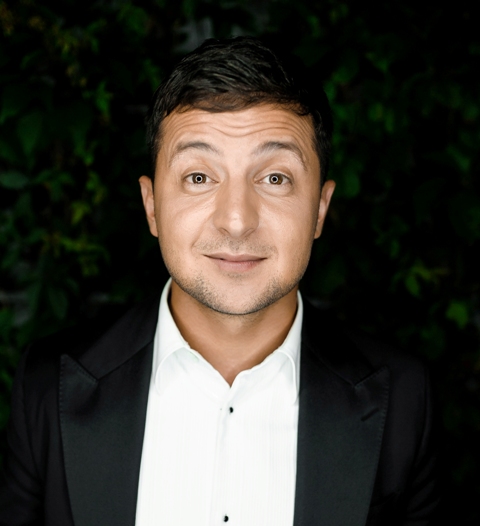Zelenskiy urges leaders to send arms, says no alternative to US aid
Ukraine faces acute shortages of ammunition and U.S. military aid has been delayed for months in Congress. "Unfortunately keeping Ukraine in an artificial deficit of weapons, particularly in deficit of artillery and long-range capabilities, allows (Russian President Vladimir) Putin to adapt to the current intensity of the war," Zelenskiy said.

Ukrainian President Volodymyr Zelenskiy urged allies at a global security conference on Saturday to plug an "artificial" shortage of weapons that is giving Russian forces the upper hand on the battlefield and said stalled U.S. aid was imperative. Addressing the gathering of politicians, diplomats and military officials from around the world, who gave him a standing ovation, Zelenskiy mixed gratitude for the support shown by Western countries with urging them for more.
He spoke at a critical juncture in Russia's nearly two-year-old invasion of Ukraine, with his troops forced to withdraw from the devastated eastern town of Avdiivka. Ukraine faces acute shortages of ammunition and U.S. military aid has been delayed for months in Congress.
"Unfortunately keeping Ukraine in an artificial deficit of weapons, particularly in deficit of artillery and long-range capabilities, allows (Russian President Vladimir) Putin to adapt to the current intensity of the war," Zelenskiy said. He said that sending additional packages of weapons and air defences to Ukraine was the most important thing its allies could do.
"If your artillery (range) is 20 km (12 miles), but Russia's is 40 km, there is your answer," Zelenskiy said. Asked about the delayed U.S. aid after a bilateral meeting with Zelenskiy, U.S. Vice President Kamala Harris, a Democrat, denounced "political gamesmanship" in Congress that had no place in such matters.
U.S. Republicans have insisted for months that any additional U.S. aid to Ukraine, and Israel, must also address concerns about migration. Meanwhile Donald Trump, the frontrunner for the Republican presidential nomination, has said he would ask European allies to reimburse the United States for around $200 billion worth of munitions sent to Ukraine.
That has raised concern by Kyiv and its allies that U.S. funding for Kyiv in its war against Russia would dry up completely if Trump went on to win a second term in the November U.S. election. Zelenskiy said there was no alternative though to U.S. aid. “We are counting on the United States as our strategic partner, that they would remain our strategic partner," he said.
EUROPE MUST UP ITS DEFENCE GAME The delay in U.S. aid is putting more of a burden on Europe, with Germany the second largest provider of military assistance to Ukraine. Berlin says it has provided and committed to some 28 billion euros ($30.17 billion) of such aid so far.
German Chancellor Olaf Scholz side-stepped questions on Saturday on whether to give long-range Taurus missiles to Kyiv, although he did urge other European capitals to match Berlin's hike in military assistance. European Commission President Ursula von der Leyen said Ukraine must be integrated into Europe's defence programmes as Russia was "outmassing Ukraine" with soldiers and by "throwing quick and dirty weapons produced in North Korea and Iran".
The European Commission will present a defence industrial strategy proposal in three weeks, she said, and will also open a defence innovation office in Ukraine. Both Scholz and von der Leyen also said Europe needed to strengthen its ability to defend itself.
A potential return of Trump to the White House is fanning fears about U.S. commitment to defending its allies. Trump said a week ago that if re-elected later this year he would not defend allies within the NATO western defence alliance who fail to spend enough on defence - although the NATO charter specifically commits members to defending each other in the event of attack.
Germany is discussing the development of distance-capable precision weapons with France and Britain in order to ensure its deterrence strategy remains cutting-edge, said Scholz. 'STOP WHINING ABOUT TRUMP'
Trump or no Trump, Europe still has to strengthen its ability to defend itself, Scholz and others underscored at the conference, dubbed the "Davos of Defence". "We should stop moaning and whining and nagging about Trump," said outgoing Dutch Prime Minister Mark Rutte. "We do not spend more on defence or ramp up ammunitions production because Trump might come back."
"We have to work with whoever is on the dance floor," said Rutte, frontrunner to succeed Jens Stoltenberg as secretary-general of NATO when he steps down. Stoltenberg reiterated the importance of not undermining the defence alliance with talk of European defence autonomy.
Talk in particular of a potential European nuclear deterrent that would not involve the United States is "not helpful", he told Munich delegates on Saturday. And it "would only undermine NATO in a time when we really need credible deterrence". ($1 = 0.9282 euros)
(This story has not been edited by Devdiscourse staff and is auto-generated from a syndicated feed.)
ALSO READ
Biden Rules Out Talks with Putin Amid Russia's Struggles in Ukraine
Ukraine Urges NATO for Unlimited Weapon Use, China Criticizes NATO's Bias
China Rebukes NATO Summit's Criticism on Ukraine Stance
Biden Warns China Over Support to Russia Amid Ukraine Conflict
Biden Unveils $225 Million Military Aid Package for Ukraine










